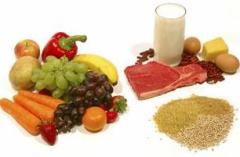Competency and Learning Objectives:
Students will be able to identify and apply food principles to food and nutrition systems.
- Calculate and interpret nutrient composition of foods.
- Apply scientific research, including microbiology, food science and food safety to functions of ingredients in food and process controls.
- Demonstrate basic food preparation, quantity food production, and food presentation skills.
- Modify recipes and recipe proportions for individual, group dietary and volume production.
- Summarize health promotion and disease prevention theories and guidelines and explain the role of food in promotion of a healthy lifestyle.
- Analyze foodservice operations using the foodservice systems approach.
Reflection of my knowledge, skills, and future learning needs:
Food Culture and Society and Experimental Study of Foods are two courses that have made me well-rounded in the basics of food and nutrition. With a lab component to both classes, I spent a lot of time in the kitchen developing my cooking and food preparation skills. In Food Culture and Society I did a meal modification group project where I analyzed the nutrient composition of a traditional recipe and altered the recipe to make it healthier by reducing total fat, calories, and sodium. For another group project I had to see how far I could stretch an allotted amount of food stamps to feed a family of four healthfully for three days. I also led a cooking demonstration for my fellow students and professor. In Experimental Study of Food I did another recipe modification project, that time focusing more on the physical qualities of the modified food as opposed to the nutrient composition.
These nutrient analysis, recipe modification, meal planning, and cooking skills will be invaluable to meal in both my career and my personal life. I look forward to becoming ServSafe certified when I take Foodservice Systems this Spring.
